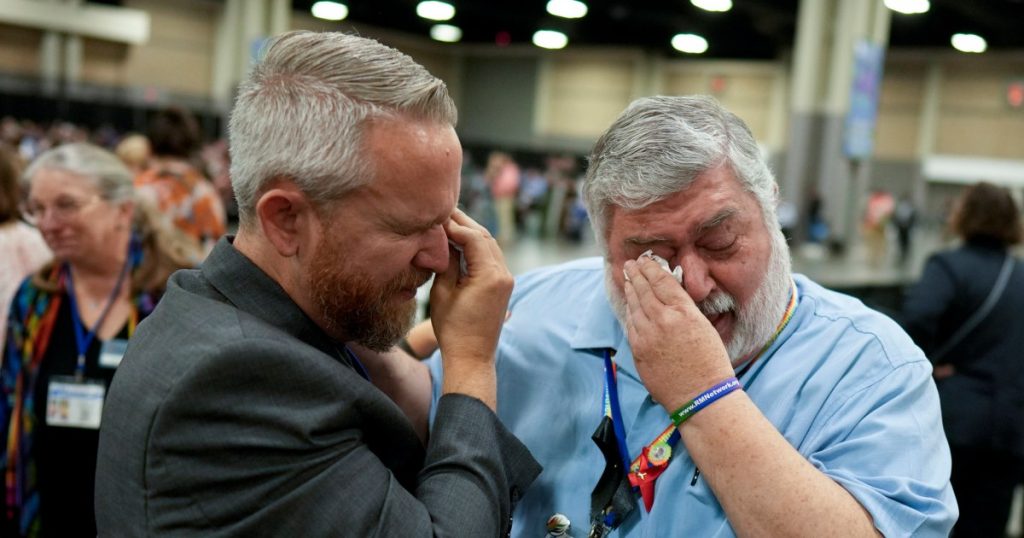The recent United Methodist General Conference made history by removing half-century bans on gay clergy and same-sex marriages. This change follows decades of activism and marks the end of epic battles and schisms over LGBTQ involvement in mainline Protestant denominations across the United States. While these reversals are significant, they come at a time of declining membership and influence for these denominations, including Methodists, Presbyterians, Episcopalians, and Lutherans.
Despite the landmark decision at the General Conference, challenges lie ahead as individual congregations and regions navigate the implications of these changes. For conservative evangelical churches and colleges, controversies may arise as they adjust to the new policies. The journey to LGBTQ inclusion has not been easy, with many instances of ecclesiastical civil disobedience and clergy facing disciplinary actions for defying church bans. The emotional toll of the long fight for equality is felt by many in the LGBTQ community.
The mainline Protestant churches have been grappling with declining membership since the 1960s, and the recent departures of conservative congregations further exacerbate the situation. The aging demographics and lack of younger members pose significant challenges for these denominations, including the United Methodists, Presbyterians, and others. While the removal of LGBTQ restrictions is a significant step, it may not address the underlying issues that have contributed to the decline in membership across these churches.
The battles over LGBTQ inclusion in mainline churches date back to the 1970s, with denominations issuing teachings on the incompatibility of homosexual practice with Christian teaching. Progressive and conservative groups within these churches engaged in passionate debates over these issues at their legislative assemblies, resulting in protests, disruptions, and calls for divorce. Despite the progressive dismantling of bans within some denominations, strains with partner churches outside the U.S. remains an ongoing challenge.
The United Methodist Church faces unique international dynamics, with delegates from countries that hold more conservative views on sexuality participating in the decision-making process. While the ban on LGBTQ clergy was reinforced in 2019, churches in the U.S. increasingly defied the restrictions leading up to the recent General Conference. The formation of the Global Methodist Church, composed of former UMC congregations, underscores the divisions within the denomination and the challenges ahead.
Looking ahead, the focus shifts to Africa, where a significant number of UMC members are based. While some African delegates are considering disaffiliation due to disagreements over LGBTQ policies, others view the new regionalization plan as a way to respect local cultures while remaining in the denomination. The impact of the changes in LGBTQ policies on the future of the United Methodist Church remains to be seen, but the decision-making process reflects the diverse and complex landscape of the global church.


